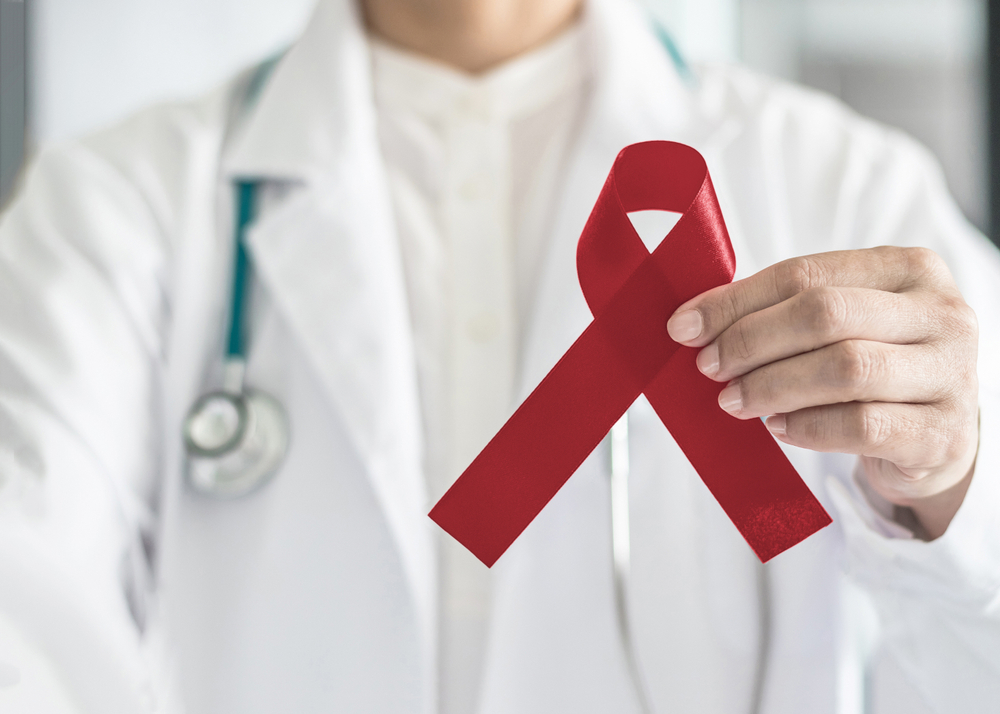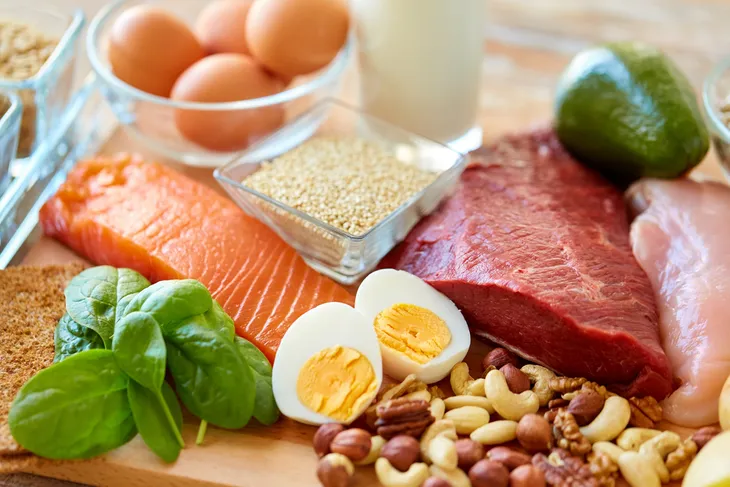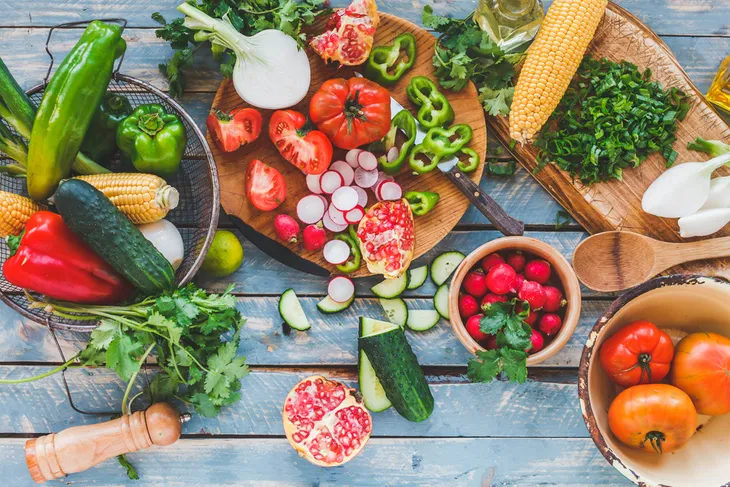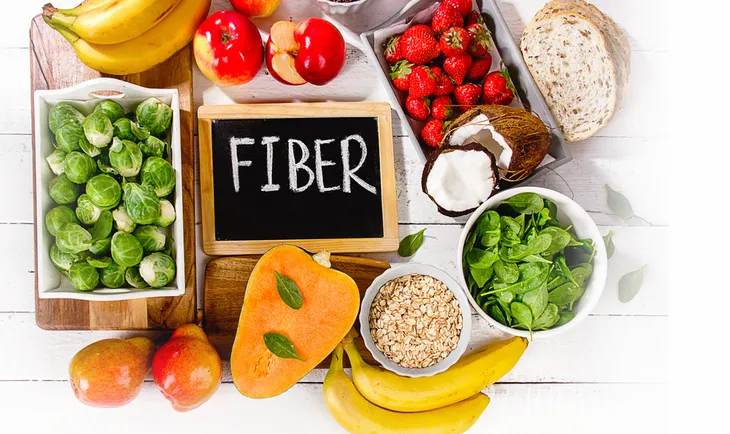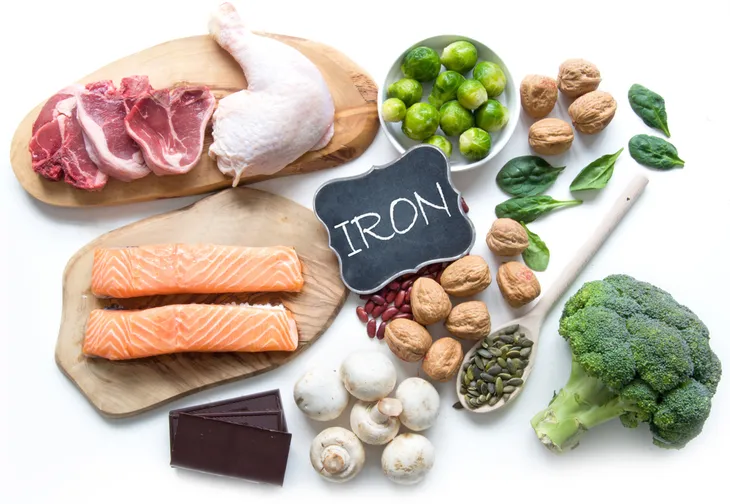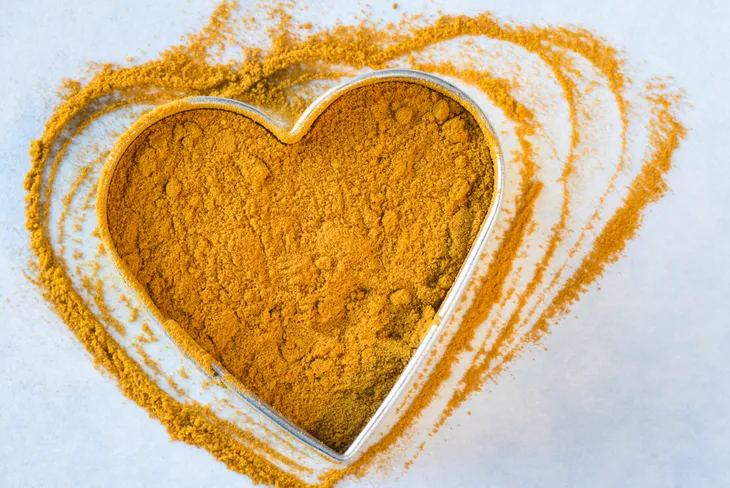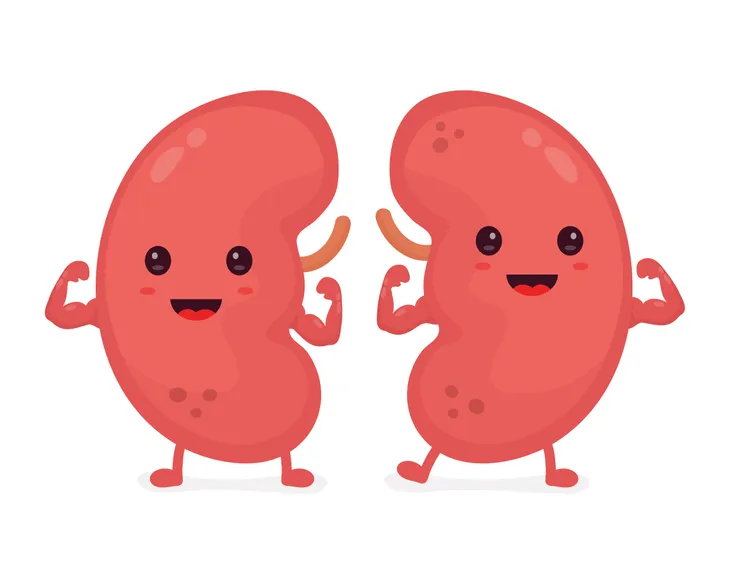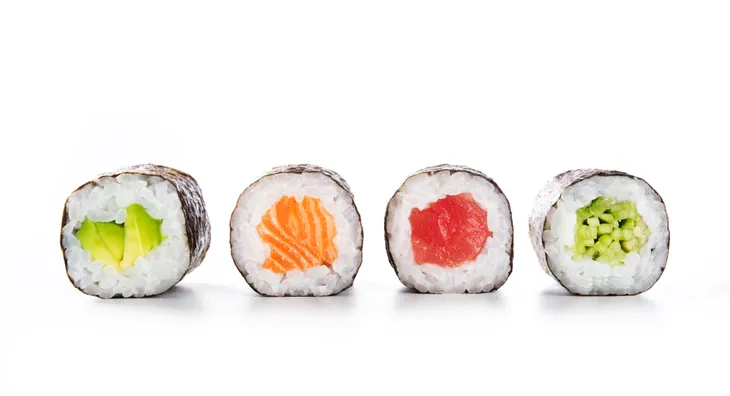Even though it’s a highly uncommon form of cancer (in the U.S. the chances of getting it are 1 in 132), the American Cancer Society predicts 2019 will bring over 32,000 new cases in the United States alone.
Multiple myeloma is “a type of cancer that affects plasma cells, which are part of your immune system,” writes Healthline. It forms in a type of white blood cells that make antibodies and attack germs, basically what our body uses to fight infections. It can accumulate in the bone marrow, crowding healthy cells and producing abnormal proteins that cause complications, says the Mayo Clinic.
Those who are diagnosed with multiple myeloma must undergo chemotherapy, which means a healthy diet is super important to give the body the strength it needs to withstand treatment. Here’s a comprehensive list of what the best foods to eat are and what you should stay away from…
Best: Bland Foods
The medication used to treat multiple myeloma can cause nausea and vomiting, so you should avoid eating spicy foods and stick with more bland tasting foods like crackers, cheese, canned fruit, yogurt, toast, potatoes, rice, and pasta.
WebMD refers to this way of eating as the “BRAT diet” which stands for bananas, rice, applesauce and toast — all great examples of bland foods to eat. Avoid eating spicy foods that might irritate the tongue and mouth, particularly if you develop mouth sores.
Best: Protein-Rich Foods
Protein helps heal the body by repairing cells and tissues and aiding in the recovery and maintenance of the immune system, says Pearl Point Nutrition Services. This is why it’s important to eat lots of protein-rich foods, especially lean proteins like lean meats (chicken, fish, or turkey), eggs, low-fat dairy products, nuts, beans, and soy foods.
Best: Vitamins and Minerals
We always want to make sure we’re getting not only enough vitamins and minerals in our diet, but also the right ones. Anyone who is diagnosed with multiple myeloma will likely be advised by their doctor or dietician to start taking daily supplements to ensure they are getting the right nutrients to keep their body healthy, says WebMD.
The source goes on to list the following vitamins and minerals as the most important: iron, vitamin D, fish oil, and folate. You can also get these vitamins and minerals through food sources. The Medical News Today provides comprehensive lists of great food sources for each mineral…
The best food sources for folate are asparagus, beef liver, black-eyed peas, lentils, broccoli, beans (cooked from dried), and spinach. When it comes to vitamin D, the best natural sources are sunlight, fortified orange juice, fortified yogurt and milk, sockeye salmon, tuna, sardines, and egg yolks.
It’s important to note, you should never start taking supplements without talking to your doctor first. Some of these supplements could potentially affect how your treatment works, so always run it by your healthcare provider first.
Best: Fruits and Vegetables
As we all know, eating lots of fruits and vegetables is always important. Pretty much all veggies are high in antioxidants which make them extremely important for fighting against cancer. Pearl Point Nutrition Services advises picking a wide variety of nice bright, colorful veggies and eating a minimum of 5 servings a day.
However, WebMD notes that your doctor might want you to stick with cooked fruit and vegetables only because raw produce can increase your chance of infection (we will get into that more later).
Best: Foods High in Fiber
Fiber is super important because it is what keeps us regular! It also helps our body break down foods and clear out our bowels. Chemotherapy can cause constipation, so maintaining a diet full of fiber is key.
WebMD provides a nice list of high-fiber foods which includes fruits like apples and pears, dried fruits like figs and prunes, whole grains, oatmeal and other cereals, nuts and beans, as well as vegetables like broccoli, carrots, celery and artichokes.
Best: Lots of Water
Just like it’s important to eat lots of fruits and vegetables, drinking lots of water is also important — no matter what! According to Pearl Point Nutrition Services, people with multiple myeloma should drink 64-ounces of fluid every day and avoid drinking lots of caffeinated beverages because they cause dehydration.
WebMD also advises drinking broth. As we mentioned earlier the chemotherapy might make it hard to work up an appetite or swallow certain foods, but it’s still important to eat. Drinking broth is the perfect solution to this, plus it keeps you hydrated. You should also eat foods that are easy to swallow like mashed potatoes or pudding.
Best: Iron
Eating enough iron is super important for someone with multiple myeloma cause anemia, or low blood count is a common complication of this condition, says Healthline. “When cancerous plasma cells in your blood multiply, there isn’t enough room for your red blood cells,” writes the source. “Essentially, the cancer cells crowd out and destroy the healthy ones.”
The best way to keep iron levels maintained or give them a much-needed boost is by eating foods that are high in iron. This will keep you from feeling super tired and allow the body to make more healthy red blood cells.
Some examples of foods that are high in iron are lean red meat, raisins, bell peppers, kale, Brussel sprouts, sweet potatoes, broccoli, and tropical fruits like mango, papaya, pineapple, and guava.
Best: Cook with Spices
Okay, so this one isn’t a food — it’s a spice. If you don’t already cook with curcumin, you should start now! A 2010 study published in the Annals of Hematology found that curcumin, which is found in the spice turmeric, “may reduce your risk of becoming resistant to certain chemotherapy drugs,” writes Healthline. This will help make sure the treatment is effective. However, the source does note that further research is needed.
Another study that was performed on mice found that curcumin could slow the growth of multiple myeloma cells.
Also, earlier in this article we mentioned that eating bland foods would help with the side effects of chemotherapy like nausea and vomiting. The biggest downside of these is that they don’t always taste very appealing. A great way to spice up their flavor is by adding some turmeric!
Avoid: Foods That Can Damage Kidneys
Kidney damage or infection is a serious concern for people with multiple myeloma. As a result, they need to avoid eating foods that are hard on their kidneys. According to Healthline, “As the cancer crowds out healthy blood cells, it can cause a breakdown of bone. This is important because your bones release calcium into your blood. Cancerous plasma cells can also make a protein that goes into your bloodstream.” This basically means, your kidneys have to work harder than normal to process the extra protein and calcium in the body which can lead to damage.
Depending on how your kidneys are working, a patient with multiple myeloma might need to restrict their diet in order to protect their kidneys. This includes cutting back on foods high in potassium, as well as their salt, alcohol, and protein intake. It could even mean they need to cut back on fluids, but this is only if the kidneys are severely damaged. As always consult a doctor before making any dietary changes.
If this is the case, Medical News Daily says they will need to cut back on foods high in potassium like bananas, avocados, spinach and other leafy greens, citrus, and tomatoes. They’ll also need to avoid foods high in phosphorus like whole-grain bread, bran cereals, oats, nuts and sunflower seeds.
If you’ve been diagnosed with multiple myeloma, your doctor will likely monitor the condition of your kidneys and can better determine whether or not you need to avoid foods with potassium and phosphorus.
Avoid: Sweets and Added Sugars
Stay away from foods that are high in added sugars like desserts and sweets because they provide next to nothing in nutritional benefits. Replace them with more nutritious foods like sweet fruits.
Avoid: Raw Food
People with multiple myeloma should avoid eating foods that have the potential to make them sick or pass along any kind of infection because they are at a higher risk of infection. As a result, they need to steer clear of any raw food.
Healthline advises not eating foods like raw sushi, undercooked meat, raw/runny egg, as well as unpasteurized drinks. These are the kinds of foods that can carry bacteria and make a person sick, especially when their immune system is compromised. You should also avoid eating fruits and vegetables that haven’t been peeled.
To practice good food safety, wash your hands often when cooking and preparing food, and use separate cutting boards and knives. You need to take extra precaution that food is thoroughly cooked to the appropriate temperature and that it is refrigerated immediately. Pearl Point Nutrition Services writes that it’s also not uncommon for people with multiple myeloma to have low blood count. If that’s the case, they might need to go on a neutropenic (low bacteria) diet. You should talk to a doctor or healthcare professional to find out more.
Tips
Depending on the treatment that a patient goes through, they will experience weight changes. While it’s hard to say exactly what those weight changes will be unless we know the treatment, it’s important to try and maintain a healthy weight. Avoid gaining a lot of weight, or losing a lot of weight. When undergoing treatment, Pearl Point Nutrition Services recommends avoiding any kind of dieting during treatment.
Another tip for good nutrition is to eat small, frequent meals throughout the day. This method of eating will ensure that the body is getting enough calories, protein and nutrients which means it will be well equipped to withstand whatever treatment it is going through. Eating small meals will also help avoid feeling nauseated which is often a common side effect. The source advises eating five to six small meals in a day, every three hours.
